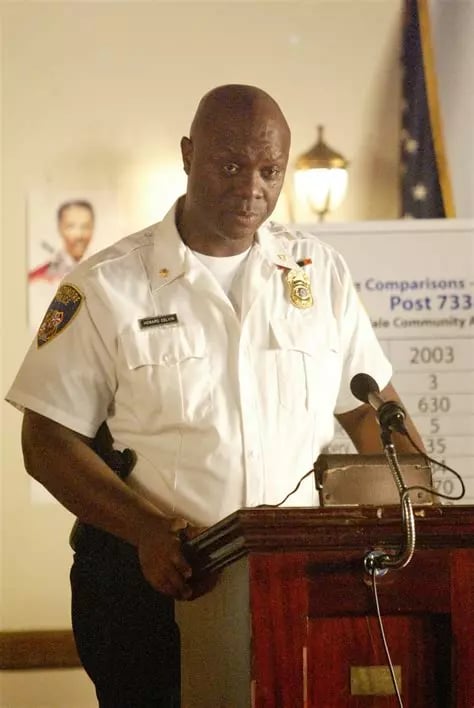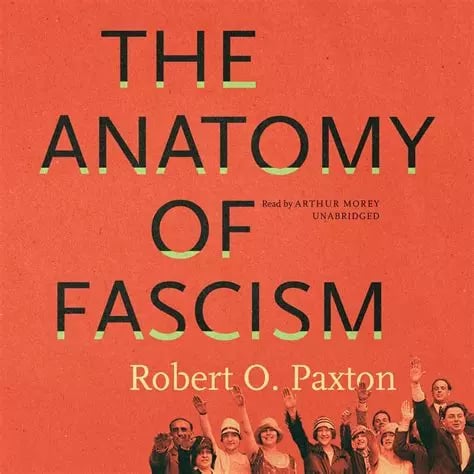In the Absence of Truth

Tuesday is the first teaching day of my 20th year in the classroom. I spent last week in meetings with my colleagues gearing up for the year ahead. I have a new role on campus, in addition to my usual teaching duties, serving as the social and emotional learning (SEL) coordinator for students in grade eleven. When the appointment was announced my colleagues chortled. I seem to not ooze “social emotional,” but we're taking a data based approach with the program, which feels like my bag.
We have some new tools in place that are (allegedly) going to generate data on student attendance, assignment completion, and assessment performance, and then we are going to review the data and make targeted check-ins and interventions based on certain thresholds. The way I keep envisioning it is the Comstat meetings from season three of The Wire. Old heads know, where Bunny Colvin and Baltimore PD brass would review policing data and activity on the corners and deploy resources accordingly. That of course led to Hamsterdam, thus other people at school don't seem very keen on my use of that analogy, but if you know how my brain works, you get it.

In times like these, being data literate and watching events unfold can be enough to drive you to drink. Data can, of course, be misinterpreted or manipulated, but in its ideal form it should guide our individual and collective deliberation. Today though, I want to focus less on the numbers themselves and more on their philosophical cousin, truth.
Every scholar of authoritarianism I've studied talks about how essential it is to protect the truth. Once there's no collectively understood truth, bad actors get to construct the reality they see fit and that suits their ends.

After previously being resistant to do so, Robert Paxton, author of 2004’s The Anatomy of Fascism, was the focus of a NYT piece in 2024 saying it’s time to use the word “fascism” to describe rising political tides within the country. Regarding the degradation of truth, he said:
Fascism does not rest explicitly upon an elaborated philosophical system, but rather upon popular feelings about master races, their unjust lot, and their rightful predominance over inferior peoples… In contrast to other “isms,” the truth was whatever permitted the new fascist man (and woman) to dominate others, and whatever made the chosen people triumph.

Timothy Snyder, in his 2017 book On Tyranny: Twenty Lessons from the Twentieth Century, advised the following:
To abandon facts is to abandon freedom. If nothing is true, then no one can criticize power, because there is no basis upon which to do so. If nothing is true, then all is spectacle. The biggest wallet pays for the most blinding lights.
Hannah Arendt decades before them warned us about how the ubiquity of lies can render the truth impotent in her 1971 piece Truth and Politics:
It has frequently been noticed that the surest long-term result of brainwashing is a peculiar kind of cynicism – an absolute refusal to believe in the truth of anything, no matter how well this truth may be established. In other words, the result of a consistent and total substitution of lies for factual truth is not that the lies will now be accepted as truth, and the truth be defamed as lies, but that the sense by which we take our bearings in the real world – and the category of truth vs. falsehood is among the mental means to this end – is being destroyed.
She argued the ocean of lies creates rising cynicism and to cope people devalue everything, both lies and truth.
Unfortunately, we didn't listen. We never do.
If you're looking at this moment and feel like you're taking crazy pills, you are not. We are experiencing an intentional campaign to delegitimize the objective truth and attempt to redefine the information sphere and reality to the whims of an authoritarian figure.
Within my lifetime, we've seen this process unfold in the Central Asian states and aspects of it are well documented by people like Sarah Kendzior who did her graduate studies on authoritarian states focusing on the region and elsewhere.
We've also seen it in Latin America from both left-wing and right-wing political regimes engaging in disinformation, misinformation, propaganda, and censorship programs to stifle dissent and manipulate the public.
You’ll have to forgive me for expecting the American political establishment to be better prepared for this moment. Instead, we are watching institutions capitulate while the information environment collapses before our eyes.
A notable example is the defunding of public media. These cuts target our civic infrastructure. Here’s James Greenberg on why they're so dangerous:
We need to stop thinking of public media as a cultural amenity and start recognizing it for what it is: civic infrastructure. Like clean water, postal delivery, and public education, it underwrites basic conditions for social cooperation. Its function is not simply to inform, but to create a shared informational field across lines of geography, class, and politics. Without it, the connective tissue of the public frays. The collapse comes not through censorship, but through disconnection.
Similar attacks are happening on other sources of data and truth in our society: the recent toppling of the head of the Bureau of Labor Statistics is an example. As is gutting the VOA abroad, and NOAA, who produces climate data and the rise of pseudoscience anti-vaxx pablum at HHS.
Putting this all together you have an all-out war on the traditional channels the public uses to get information, and an incredibly media savvy administration weaving their own alternative reality full of paranoia, nationalism, and overt hostility toward targeted populations.
We can all see it happening, but I also feel like we're sitting around waving our hands, saying “this is terrible.”
Put differently, people who know better have an obligation to do better. And I guess this is a challenge to us to be more protective of the information landscape, and in particular, to be more circumspect about what we share and disseminate ourselves. I selfishly think that my readers are better than average in their information diets, but in the face of this onslaught we have an obligation to do more—to be protectors of the truth.
If that leaves you wanting examples, good, you’ll get those next week.
–
The title of this week’s newsletter is ripped from the 2006 album by the post-metal band ISIS. It’s excellent, growly productivity music.